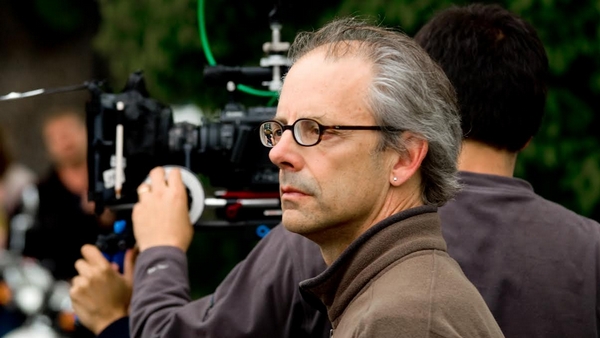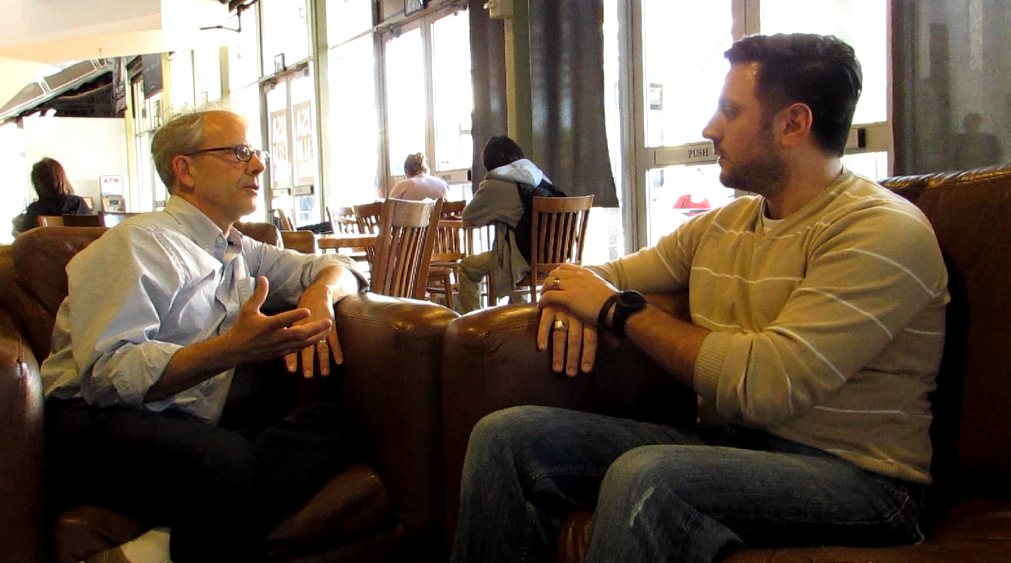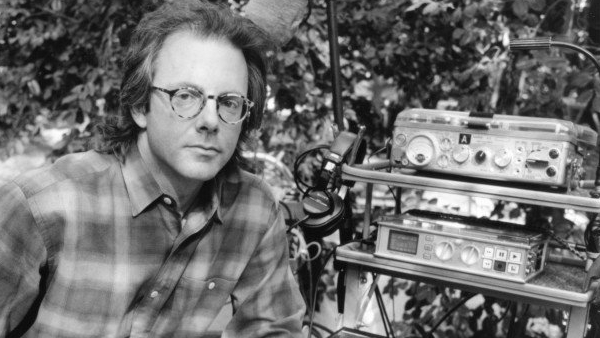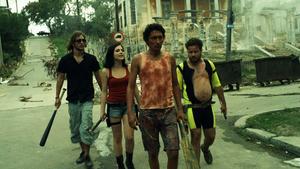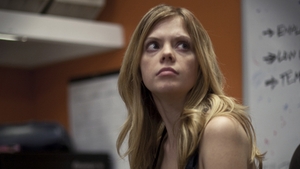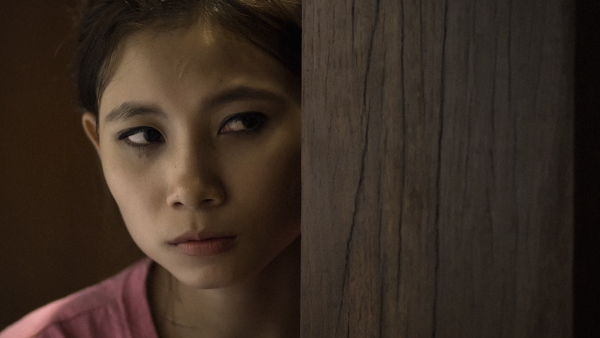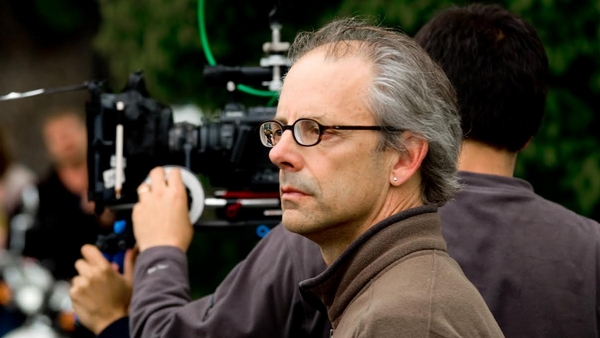 Oscar-winning sound engineer and filmmaker Ron Judkins earned a Bachelor of Fine Arts Degree from Southern Methodist University in Dallas. He then began his motion picture career as a sound recordist and editor for public television. In January of 1998 Ron began production on his feature directorial debut, The Hi-Line. The project premiered in the Dramatic Competition at the 1999 Sundance Film Festival. It won the “Audience Award” at the Austin Film Festival, the “Best Feature” Award at both the Louisville Film and Video Festival and the Heartland Film Festival, and the “Best Actress” and “Best Cinematography” awards at the Santa Monica Film Festival.
Oscar-winning sound engineer and filmmaker Ron Judkins earned a Bachelor of Fine Arts Degree from Southern Methodist University in Dallas. He then began his motion picture career as a sound recordist and editor for public television. In January of 1998 Ron began production on his feature directorial debut, The Hi-Line. The project premiered in the Dramatic Competition at the 1999 Sundance Film Festival. It won the “Audience Award” at the Austin Film Festival, the “Best Feature” Award at both the Louisville Film and Video Festival and the Heartland Film Festival, and the “Best Actress” and “Best Cinematography” awards at the Santa Monica Film Festival.
His latest film, Finding Neighbors, written and directed by the two time Academy Award winner, is a comedic drama about three sets of Los Angeles neighbors who are searching for true connection. Ron is also the director of 24 Peaces, a documentary feature film now in production that includes interviews with Desmond Tutu, Marianne Williamson, and Deepak Chopra. With Mark Stolaroff, Ron produced Henry Barrial’s True Love, which was developed in the 2003 Sundance Screenwriters Lab.
Winner of two Academy Awards for Best Sound for both Jurassic Park and Saving Private Ryan, Ron was also nominated for Academy Awards for Best Sound for his work on War of the Worlds, Schindler’s List and, recently, Spielberg’s Lincoln. As a production sound mixer, he has worked with notable directors Steven Spielberg, Barry Levinson, Gus Van Sant, Frank Marshall, Richard Donner, Stephen Frears and Paul Thomas Anderson. We got to sit with Ron who brought his film to the 44th Annual USA Film Festival. The following are highlights from our session.
GST: Thanks for coming back to Dallas Ron, and for bringing Finding Neighbors to the Festival.
RJ: Sure! This is our 10th festival and it’s a nice homecoming for me actually because the USA Film Festival is the first film fest I ever went to when I was a student here at SMU. I was just so excited going to the festival back then and I never thought that someday I’d be bringing my own film here.
GST: I heard you went to speak to some of the SMU students on this trip right?
RJ: Yes, I went to talk to the film/sound students there. I’m also a graduate of the Greenhill School where I attended High School. In addition to the festival, I really wanted to reach out to the broader community. I think it’s important and a privilege for me to be in a position where I can sort of give back to programs that helped me along the way where I studied and where I came from.
GST: You’ve devoted your life to the film industry and so it seems like Finding Neighbors might be a personal story. So is this a sort of catharsis for you in some way, or is this pretty much the case for everyone who lives in LA?
RJ: *laughs* I think it’s a little bit of both actually. Not completely autobiographical, but most certainly there are some similarities. I made a film in 1999 called The Hi-Line which went to Sundance and I thought it was going to catapult me into more studio financed movies. But it didn’t happen right away. I went and got an agent, and did all the things you’re supposed to do when you’re trying to package a movie to get some financing…but some years went by and nothing really happened. So four years ago I decided “ok I’m going to make a movie and I’m going to do it the way I did it the first time” and just gathered whatever assets I could get together.
I thought, “ok, we have this house, we can get the house across the street, utilize all the cars and we have this nice little community to pull from. Let’s tell a story right here”. In the end, Finding Neighbors ended up being a guy who shares a very similar personal story in his career but again it’s not purely autobiographical. *laughs*
My day job in my movie career is in the sound department and I’ve been very successful at doing that, but in the back of my mind I always wanted to make films. But you get to a certain age and the older you get things start to get further from your grasp. Filmmaking these days tends to really thrive on youth and it’s all about people in their 20s and 30s but I wanted to tell a story about a guy in middle-age who has had a career, a very successful one, and watched it fade and then focus on how you get that back.
GST: Aside from the immediate assets you mention, like friends in your community, I saw from the end credits that this was a large Kickstarter project. Can you talk about how these days that support helps you get something off the ground?
RJ: Actually, we brought Kickstarter into the project very late in the game. I was able to raise some money along with some money of my own that I put into this
even though there’s a rule of thumb that says filmmakers are never supposed to put any of their own money into their projects. But I’ve never been able to do it any other way. For both of the films I made I’ve always thought that if you don’t believe enough in your own project and don’t put your money on the line then how is anyone else going to get behind it?
So we raised the money pretty quickly, and honestly we weren’t looking for that much money so when we started the Kickstarter campaign we had most of what we needed. What we were looking for at that point was funding for post-production and some of the animation.
I love Kickstarter, and in a way I think it offers good lessons about life too. When you want to start a project and are asking for support you, in return, have to provide value. It’s not like you put your program out there and people just throw money at it. You have to reach out to people and involve them and that’s why we’d make videos every week telling about different aspects of the production and trying to educate people about the filmmaking process. Get them involved and they’re more likely to feel part of the project. The other thing about it that’s really fantastic about it is that can be a good litmus test.
If you have an idea, and you put it out there and no one responds, it really gives you pause to ask, “ok is this really something that people are going to want to see? Does it have credence, does it have value?” And if people aren’t responding it’s maybe a good opportunity to rethink what you’re trying to do.
GST: There’s a message in the film underlying Sam’s struggle that’s basically about prioritizing and working through his problems. For me it’s a little uncomfortable to watch because it shows that there’s a stage we can all reach where our accomplishments may eclipse our talent and it leaves us wondering where our next inspiration, milestone, or our next hit/success is going to come from.
That’s kind of the universal fear for every working person. So for me it was little uncomfortable to watch just because of that uncertainty that lies ahead for all of us.
RJ: It’s interesting you say it’s uncomfortable to watch. I’m at the tail end of the baby boomer generation so my sort of glory years were in my 20s and 30s and at that time all of us in that collective group were identified as the youth movement; we all thought we were going to change the world. With that came all this excitement, energy and passion that came with being young and having the world in front of us, and then 30 years went by and some of us woke up and went “What happened? Where did my passion go?”
GST: Well that’s how the movie starts, with Sam’s narration telling us about how he got to where he is now. Definitely grabs the audience.
RJ: You’re right, and along with the questions I think there’s also kind of a depressive cycle we can fall into. For some of those people it happens because they’re not getting the same attention and they don’t feel that youthful vigor.
When they’re not being reinforced by the current culture they start not believing in themselves and when anyone buys into that mindset it’s like a kind of like certain death because once you start believing that’s the case, you’re stuck. So this movie is for all those people, and women have actually responded just as well as men have. But Finding Neighbors is for people who have lost their passion and think life has passed them by.
GST: I forget where I heard this but Finding Neighbors epitomizes the state of having lost passion in your passion but not having any other options – that’s Sam in a nutshell. Now I love the message of the film, a wake up call, or cautionary tale in a way, but it just, for me, showed a possible future some 10-15 years down the line and it makes me kind of shudder…like the ghost of Christmas future almost *laughs*
RJ: *Laughs* Well really too, aside from about getting over emotional and professional hurdles, there’s another message about an improbable friendship that unlocks each of the characters. One of the ideas is that you never really know where love or caring or support is going to come from and if you don’t put it out there yourself you’ll never know how far it can go and who it can affect.
I think often in our culture we have become increasingly hesitant. In the film, Sam, played by Michael O’Keefe, feels trapped. He’s uncomfortable in public or around people or even talking to his wife and it’s so important for him to just reach out, walk down his street or look over his hedge and make an effort.
GST: Well he feels cloistered too. On that note, in a visual sense, the setting felt really small and confined, and that’s probably because of the architecture of the neighborhood and houses in which you shot. Even scenes at the dinner table felt constrained, kind of implying that dinner was not a meal but a forced conversation. Was that intentional?
RJ: That’s a really interesting question because originally when I wrote the script I had this set up in the Hollywood Hills with a view of the ocean and an attempt to show really how far he had fallen. We found a location, or one that we could do with but there were a lot of logistical issues. Basically there was no parking, or parking enough for people making a movie. So it was a big ordeal to figure out how we would get it all to work with all the driving, parking, set up, take down etc.
So we looked at doing it an area close to us and settled on our own neighborhood. I think in retrospect it was the right idea because what happened was it allowed us to show an area and a slice of life in LA that’s not glitzy or glamorous; those are the houses that we live in and I’m very familiar with that. It really gave the film an identity and so Finding Neighbors is very special in that regard. It is a little claustrophobic and I think that works for the movie.
GST: Your background is in sound and you’ve worked with so many great filmmakers in your career. But as you’ve always had a desire to make films did you subconsciously, or even consciously pick up on what Spielberg or Gus Van Sant did and say “when I make a movie I want to use a shot like that”? Were you taking notes the whole time?
RJ: For me, I would always particularly watch how the directors interacted with the actors. I think that relationship is very special in the way a director communicates with whoever is in front of the camera. I’ve worked with some fabulous directors and I think some of that is osmosis. Just by being on set you pick up some things.
I’m not going to say I picked up particular tips from Steven Spielberg and used them in this movie, but I will once in awhile have a shot or something and I’ll remember the way Steven tells a story and it’s always great to know how the masters do something. That’s been a privilege I’ve had for a long time.
GST: When you’re directing, or setting up a shot, is it difficult turning off the “sound” part of your brain and focusing on what’s in front of the camera?
RJ: Yeah *laughs* it was for me when I was getting started, especially the first time I directed on my film The Hi-Line. The first few days I was over at the sound booth talking to the sound guy the whole time. I think part of it is because of how anxious I was to be stepping into the shoes of a director.
But then on day three I realized that when I’m over there I was just in the wrong place. I hired people that I trusted, told them to go to work and so I let them do their job so I could concentrate on the actors and their performances. But it was difficult for a little while to switch gears completely.*laughs*
Thanks to Ron for his time. Finding Neighbors can next be seen at the Newport Beach Film Festival in late April, and at the Independent Filmmakers Showcase in Los Angeles on May 29th. More info about the movie can be viewed at the official website: www.findingneighborsmovie.com
